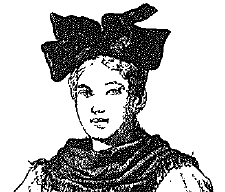In the Land of Israel by Amos Oz; Harcourt Brace Jovanovich; San Diego.
According to numerous speculative historians and novelists, Hitler did not die in a Berlin bunker almost 40 years ago. He escaped, they theorize, to Brazil—or Argentina, or Paraguay, or New Mexico, or the South Pacific. Explaining away the remains medically identified as Hitler’s so as to give plausibility to these fantasies is a task best left to the experts at the National Enquirer, but identifying and evaluating the corpses of the ideas and cultural formulations that went up in flames with the Führer’s defeat is a task for anyone who would understand the late 20th century. For only such philosophical autopsies can clarify the ideas and cultural developments that Hitler inadvertently helped make both possible and necessary.
Mingled with the smoke from Hitler’s cremation were not only the ashes of six million Jews as individuals but also of the Diaspora as a cultural and historical phenomenon. Out of those ashes arose the phoenix of a new nation, Israel, created and unified by the newly empowered political vision of Zionism. But the future of that state is now dubious in part because the concept of an ideologically unified and militarily powerful nation was badly scorched on the fascist bier—at least in the West. In the Soviet Union, where totalitarianism was far more firmly en trenched than in the third Reich and where anti-Semitism continues to be a state doctrine, this concept of the anned state united by doctrine was carefully preserved in the fireproof safe be hind the iron curtain. On this side of the curtain, however, where free men had willingly united to defend the humane ideals defined by Judeo-Christian ethics and parliamentary tradition, noxious smoke from For tress Europe still gets in the eyes of many. Indeed, now anyone who does not categorically champion value-free pluralism over normative conformity nor headlong disarmament over vigilant might will probably be smeared with polemical suet (drawn in swastikas) by those who do. Accordingly, with the unbounded support of the Polit bureau, Arab terrorists have somehow persuaded some Westerners that because Israel has demonstrated unity of purpose and disciplined power, it must therefore be “nazi.” (Never mind that the PLO is preparing to complete the Holocaust.)
But unlike its implacable foes, Israel is a democracy, with no führer ( nor ayatollah) to lead it in battle and no Gestapo to en force internal discipline. So far, racial and cultural ties and the common threat of Arab aggression have provided a consensus wide enough to make democracy workable, yet narrow enough to inculcate fighting rigor. Judging by Amos Oz’s In the Land of lsrael that consensus is unraveling. A talented novelist and essayist who has fought in two of Israel’s wars, Mr. Oz lays bare the growing tensions in Israel between Euro pean and Asian Jews, religious and secular, right and left, intellectuals and laborers, hawks and doves. Ballots have ceased to be simply expressions of preference and have become weapons in an internecine war: the epithet “nazi” flies too frequently between Israelis. Though Mr. Oz indicts messianic religionists and the militant right for failing to cultivate “pluralism as a desirable condition,” Israel’s real problem, as he himself sees, is not the lack of diversity but the disappearance of national agreement. The pre-Six Day War unanimity on crucial issues, he shows, has not survived and desperately needs to be renewed. Since Mr. Oz’s own gospel of secular and pacifist humanism is too contentless and sterile to effect such a renewal, the reader can only hope that someone else in Israel can still find a balm in Gilead for healing breaches. If not, a noble but bitterly divided people may soon join both Hitler and their ancestors among the cinders.

Leave a Reply